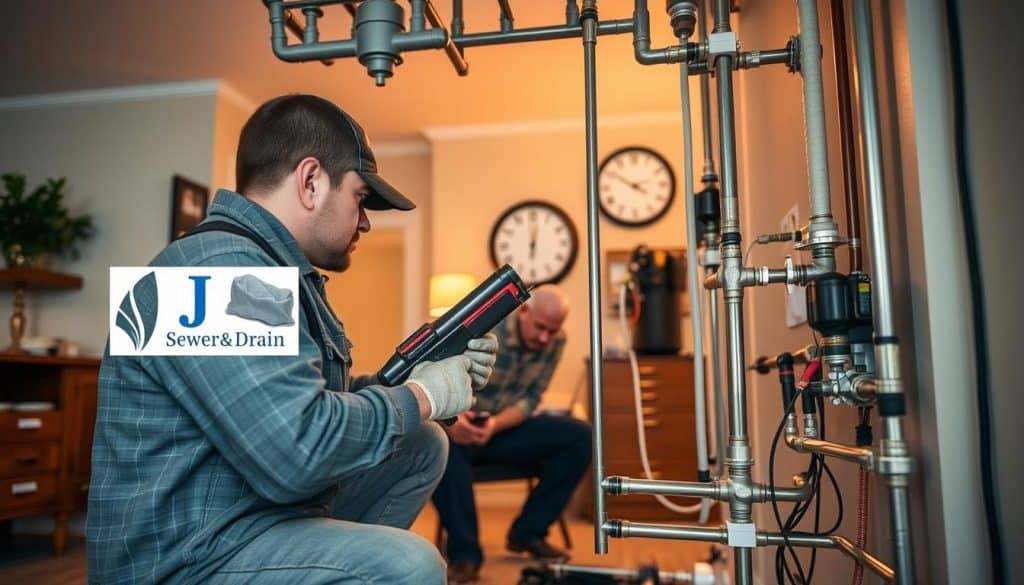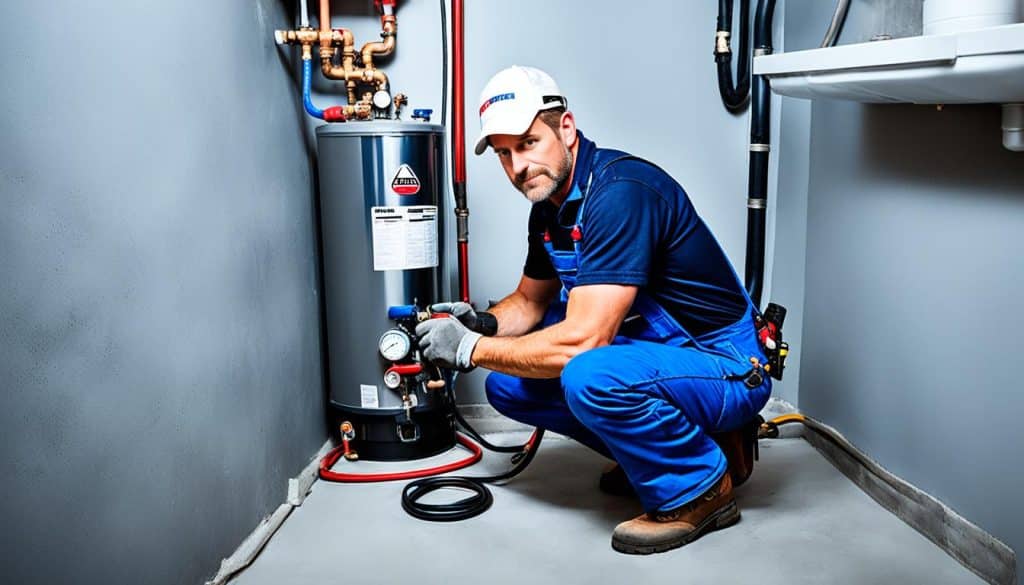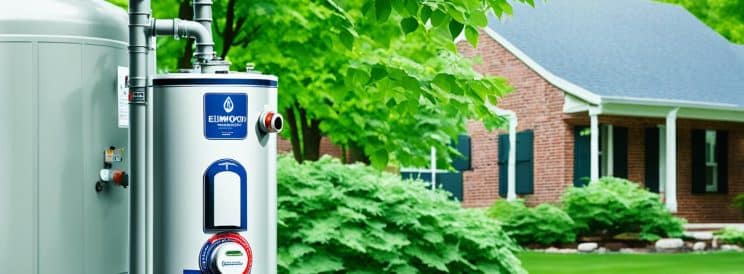How often do you think about the essential permits needed for a professional water heater replacement? Are There Any Specific Permits Required for Water Heater Installation? Getting the right permits is key for your safety and following building codes.
Replacing your water heater requires following local plumbing rules to avoid dangers like gas leaks and water damage. Whether you choose a traditional tank or a modern tankless system, you might need different permits. These confirm your installation meets current building codes.
In Chicago, J Sewer & Drain Plumbing Inc. offers services that come with guarantees. They ensure your water heater replacement is done right and without hassle.
Key Takeaways
- Understanding and securing the required water heater installation permits is crucial for safety and legal compliance.
- Local plumbing regulations dictate what types of permits are needed for different water heater systems.
- Obtaining the proper permits ensures adherence to current building codes and reduces risk of hazards.
- Professional installation services, like those offered by J Sewer & Drain Plumbing Inc. in Chicago, can assure compliance and provide peace of mind.
- Failing to comply with permit requirements can lead to significant safety risks, including gas leaks and carbon monoxide poisoning.
Understanding Water Heater Permit Regulations
Installing a water heater means following many rules to keep everyone safe. Knowing about different permits and local codes makes the process easier. It also helps avoid problems during installation.
Types of permits required
Installing a water heater needs several permits. For gas water heaters, you need a mechanical permit to follow safety rules. Plumbing permits are key for setting up water pipes right.
If you have to change the structure, you’ll need a building permit. Also, if you switch to an electric water heater, you’ll need an electrical permit.
The role of local codes
Local codes are very important for water heater rules. They make sure installations are safe and work well in each area. For example, J Sewer & Drain Plumbing Inc. follows Chicago’s codes closely.
By following these local rules, homeowners can make sure their installation is safe and legal.
Water Heater Installation Guidelines
Following water heater installation guidelines is key for safety and efficiency. The first step is the water heater size assessment. This ensures the heater fits the household’s needs without wasting energy.

It’s important to follow correct installation practices. For gas models, proper venting is crucial to avoid carbon monoxide buildup. You must pay close attention to the manufacturer’s instructions and local building codes.
Water heater safety measures are also vital. In areas prone to earthquakes, seismic bracing is necessary. Also, making sure the heater is easy to access for maintenance helps avoid long-term problems and extends its life.
Companies like J Sewer & Drain Plumbing Inc. in Chicago follow these water heater installation guidelines closely. They ensure installations are safe and reliable for everyone.
Are there any specific permits required for water heater installation?
Getting the right permits for water heater installation is key for safety and following rules. The type of water heater affects the permits needed. For example, gas and electric heaters have different rules for their installation.

Permits for Different Types of Water Heaters
Permits vary by water heater type. Gas heaters need permits for venting, air, and gas lines. Electric heaters focus on electrical circuits. Knowing these details is crucial for compliance.
The Importance of Building Permits
Chicago building permits are vital for safety and following rules. They ensure the installation meets local codes. This prevents hazards and costly changes later.
Mechanical and Plumbing Permits
Building permits are not the only ones needed. Mechanical and plumbing permits are also essential. They require inspections to check if the installation meets codes. Companies like J Sewer & Drain Plumbing Inc. can help get these permits quickly, saving time and money.
Permit Requirements for Installing Water Heaters
When you install a water heater, following safety rules is key. You need to get water heater permits. These permits make sure your installation meets local codes and works safely and well. Skipping this step can lead to damage and health risks.
Getting the right permits and approvals from building inspectors is important. They check your installation to find any problems. This helps avoid future issues and gives you peace of mind.
In Chicago, getting help from experts like J Sewer & Drain Plumbing Inc. is a good idea. They help with permits and make sure installations are safe. They offer great services and guarantees, making you confident in your water heater setup.


